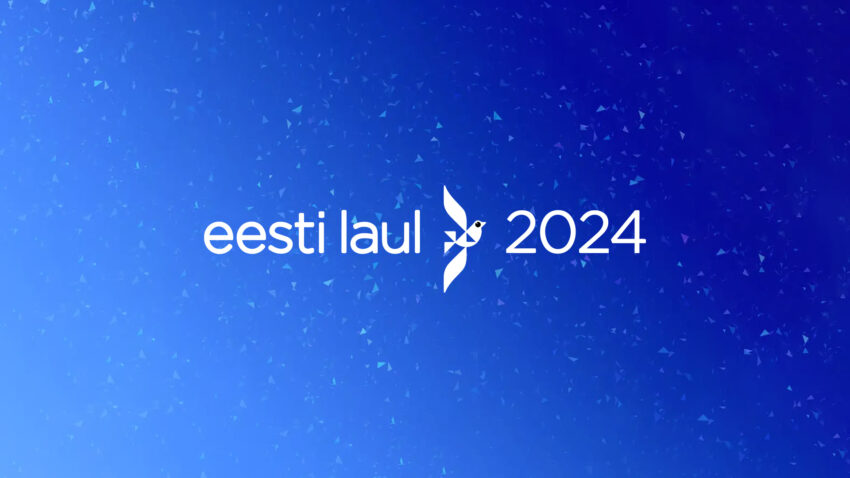As of the morning of Tuesday, October 10, the Estonian public television had received a total of 12 entries, six in Estonian and six in English. This number of entries is less than the total number of participants in the competition, which will amount to a total of 20. Out of these, 15 entries will go through the semi-final, while the other 5 will have a direct ticket to the final.
According to Karmel Killand, director of Eesti Laul 2024 and chief editor of ERR’s live broadcasts, the focus is on the story accompanying the song, and less attention will be given to the song’s language. Although the regulations stipulate that the authors must be Estonian, Killand sees no issue in working with foreign authors.
The director of Eesti Laul 2024 stated on the Vikerraadio afternoon program that having foreign authors “always enriches culture and creativity” and believes that it was a special collaboration of this kind that led the song “Everybody” to win the competition for the small Baltic country at the time.
The director of Eesti Laul also does not see the proportion of songs in English as a problem for next year’s Estonian competition.
“It’s the world around us. We can’t escape it. What matters is the story our artist tells. Of course, I’m a big fan of Estonian music, but if the song is very successful in English and the artist tells stories about their homeland and themselves, then the whole thing is completely right. The overall idea remains to highlight Estonian music.”
Karmel Killand, director of Eesti Laul 2024
Eesti Laul 2024: Last week to submit entries
The deadline to submit entries for Eesti Laul 2024 is on October 23 at 12:00 local time (11:00 in Spain). However, the director of the competition recommends submitting the song before October 21, as the entry fee will double if submitted after that date.
“The participation fee is applied for the simple reason that not everything should be left until the last minute. Unfortunately, the trend is that the last week is when the flood of songs comes in.”
Karmel Killand, director of Eesti Laul 2024
Until noon on October 21, the fee for submitting a song in Estonian is 50 euros, and for a song in a foreign or multilingual language, it’s 100 euros. After that, and until the deadline for submissions, the fees will be 100 and 200 euros, respectively.
The participation fee, as explained by Karmel Killand, was set to avoid last-minute changes. “It was a huge task. We didn’t have such a precise and fast computer system as we do now. Receiving and registering everything manually caused a lot of confusion overnight.”
Entries can be submitted electronically on the Estonian public television website:
Submit your entry for Eesti Laul 2024 here
The rules that entries must comply with for Eesti Laul 2024
As for the artists, they must be over 16 years old, with no more than 6 people on stage, and cannot be in the selection process to represent another country at Eurovision. Similarly, both composers and singers can be citizens, residents, or non-residents of the Republic of Estonia. The maximum number of proposals submitted or performed, both as composers and singers, is 5.
An expert jury will evaluate all entries blindly and select up to a total of 20 songs, and choose 2 additional songs as reserves. The teams of the selected songs must create a music video to submit to ERR.
Full rules for Eesti Laul 2024
Eesti Laul 2024: When and how will it take place?
The mechanics of Eesti Laul 2024 include innovations compared to previous editions. In this year’s edition, the competition will feature a single semifinal, which will take place on January 20.
Before this semifinal, a total of 20 songs will be selected from all the entries by a professional jury, with 15 participating in the semifinal and 5 receiving a direct pass to the grand final on February 17. The selected artists will be announced in early November, while the chosen songs will be revealed to the public on December 8 in a special program on Estonian television.
In the semifinal where 15 artists will participate, there will be two voting rounds as in previous editions. In the first round, both the jury and the public will vote, and in the final round, the public will choose the last finalists. A total of 5 artists from the semifinal will secure their spot in the final.
The final, scheduled for February 17, will feature the 5 songs pre-qualified for the final, as well as the 5 songs that qualify from the only semifinal of the competition this year. A total of 10 artists will be part of the Eesti Laul 2024 final.
The winner of the competition will be selected, as in previous editions, by both the jury and the public in two voting rounds. In the first round, both will vote and choose three super finalists for a second round. In the second round, only the public among the super finalists will choose the winner of Eesti Laul 2024 and the representative of Estonia at Eurovision 2024.
Estonia at Eurovision
Estonia participated for the first time in the festival in 1994. The country has won the contest once, in 2001 with Tanel Padar, Dave Benton, and the group 2XL with the song “Everybody.” Since the introduction of the semifinals in 2004, the country did not qualify for 5 consecutive contests. In 2018 with “La Forza” by Elina Nechayeva, the Baltic country achieved an eighth place in the Lisbon final.
After the setback in 2021 with Uku Suviste and his song “The Lucky One,” Estonia placed 13th in 2022 in the grand final held in Turin with a total of 141 points earned by Stefan’s “Hope.” In 2023, Estonia once again made it to the final with Alika and her song “Bridges,” matching Elina Nechayeva’s position by finishing in eighth place with 168 points.

